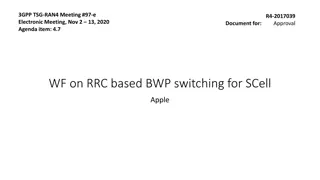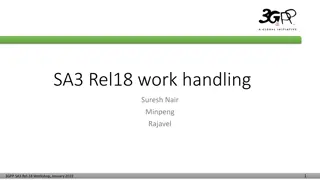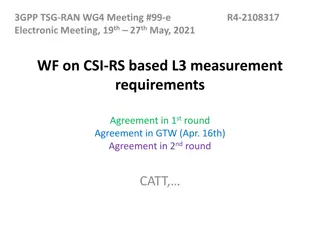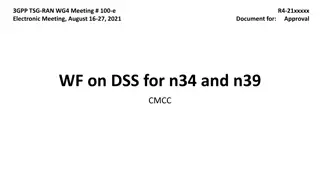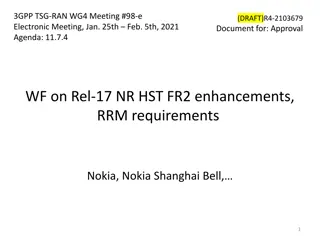
Understanding Local Variables and Constructors in Java Programming
Explore the concepts of local variables, inside-out rule, and constructors in Java programming. Learn about scoping, middle value calculation, and best practices for code style. Don't miss essential tips for writing tests and handling preconditions effectively.
Download Presentation

Please find below an Image/Link to download the presentation.
The content on the website is provided AS IS for your information and personal use only. It may not be sold, licensed, or shared on other websites without obtaining consent from the author. If you encounter any issues during the download, it is possible that the publisher has removed the file from their server.
You are allowed to download the files provided on this website for personal or commercial use, subject to the condition that they are used lawfully. All files are the property of their respective owners.
The content on the website is provided AS IS for your information and personal use only. It may not be sold, licensed, or shared on other websites without obtaining consent from the author.
E N D
Presentation Transcript
1 CS/ENGRD 2110 FALL 2017 Lecture 5: Local vars; Inside-out rule; constructors http://courses.cs.cornell.edu/cs2110
Announcements 2 Writing tests to check that the code works when the precondition is satisfied is not optional. Writing assertions to verify the precondition is satisfied is not optional, and if you do so incorrectly you will lose points. Writing tests to verify that you have done (2) correctly is optional. Look at JavaHyperText entry for JUnit testing, to see how to test whether an assert statement is correct. 1. 2. 3.
Homework 3 Visit course website, click on Resources and then on Code Style Guidelines. Study 4.2 Keep methods short 4.3 Use statement-comments 4.4 Use returns to simplify method structure 4.6 Declare local variables close to first use
Assignment 1 4 Due on September 6 (tomorrow!). Form a group before submitting (or lose points). One partner has to invite the other on CMS, and the other has to accept. Finish early!
References to JavaHyperText 5 local variable scope this shadowing a variable inside-out rule super constructor; constructor call; constructor, default; constructor call, default
Local variables middle(8, 6, 7) 6 /** Return middle value of a, b, c (no ordering assumed) */ publicstaticint middle(int a, int b, int c) { if (b > c) { int temp= b; b= c; c= temp; } method body Parameter: variable declared in () of method header Local variable: variable declared in a 8 b 6 c 7 temp ? if (a <= b) { return b; } All parameters and local variables are created when a call is executed, before the method body is executed. They are destroyed when method body terminates. return Math.min(a, c); }
Scope of local variables 7 /** Return middle value of a, b, c (no ordering assumed) */ publicstaticint middle(int a, int b, int c) { if (b > c) { int temp= b; b= c; c= temp; } block Scope of local variable (where it can be used): from its declaration to the end of the block in which it is declared. if (a <= b) { return b; } return Math.min(a, c); }
Scope In General: Inside-out rule 8 Inside-out rule: Code in a construct can reference names declared in that construct, as well as names that appear in enclosing constructs. (If name is declared twice, the closer one prevails.) /** A useless class to illustrate scopes*/ public class C{ private int field; publicvoid method(int parameter) { if (field > parameter) { int temp= parameter; } } } class method block
Principle: declaration placement 9 /** Return middle value of a, b, c (no ordering assumed) */ publicstaticint middle(int a, int b, int c) { int temp; if (b > c) { temp= b; b= c; c= temp; } if (a <= b) { return b; } return Math.min(a, c); } Not good! No need for reader to know about temp except when reading the then-part of the if- statement Principle: Declare a local variable as close to its first use as possible.
Poll time! What 3 numbers are printed? 11 public class ScopeQuiz { private int a; A: 5, 6, 6 B: 0, 6, 6 C: 6, 6, 6 D: 0, 6, 0 public ScopeQuiz(int b) { System.out.println(a); int a= b + 1; this.a= a; System.out.println(a); a= a + 1; } public static void main(String[] args) { int a= 5; ScopeQuiz s= new ScopeQuiz(a); System.out.println(s.a); } }
Bottom-up/overriding rule 12 Which method toString() is called by turing Person@20 turing.toString() ? Person@20 Object The overriding rule,a.k.a. the bottom-up rule: To find out which method is used, start at the bottom of the object and search upward until a matching one is found. toString() Person "Turing" name toString() { }
Constructing with a Superclass 15 /** Constructor: person f n */ public Person(String f, String l) { first= n; last= l; } call superclass constructor. PhD@a0 Use super (not Person) to Object toString() Person /** Constructor: PhD with a year. */ public PhD(String f, String l, int y) { super(f, l); gradYear= y; } in constructor body! null "David" "Gries" null first getName() last Must be first statement PhD 1966 0 gradYear new PhD("David", "Gries", 1966);
About super 16 Within a subclass object, super refers to the partition above the one that contains super. PhD@a0 Object toString() Person "David" "Gries" first last getName() Because of keyword super, the call toString here refers to the Person partition. PhD 1966 gradYear getName() { super.getName() }
Bottom-Up and Inside-Out 17 Person PhD@a0 Object sep ' ' toString() Person "David" "Gries" first getName() last super PhD 1966 gradYear getName()
Without OO 18 Without OO, you would write a long involved method: publicdouble getName(Person p) { if (p is a PhD) { } else if (p is a GradStudent) { } else if (p prefers anonymity) { } else } OO eliminates need for many of these long, convoluted methods, which are hard to maintain. Instead, each subclass has its own getName. Results in many overriding method implementations, each of which is usually very short



